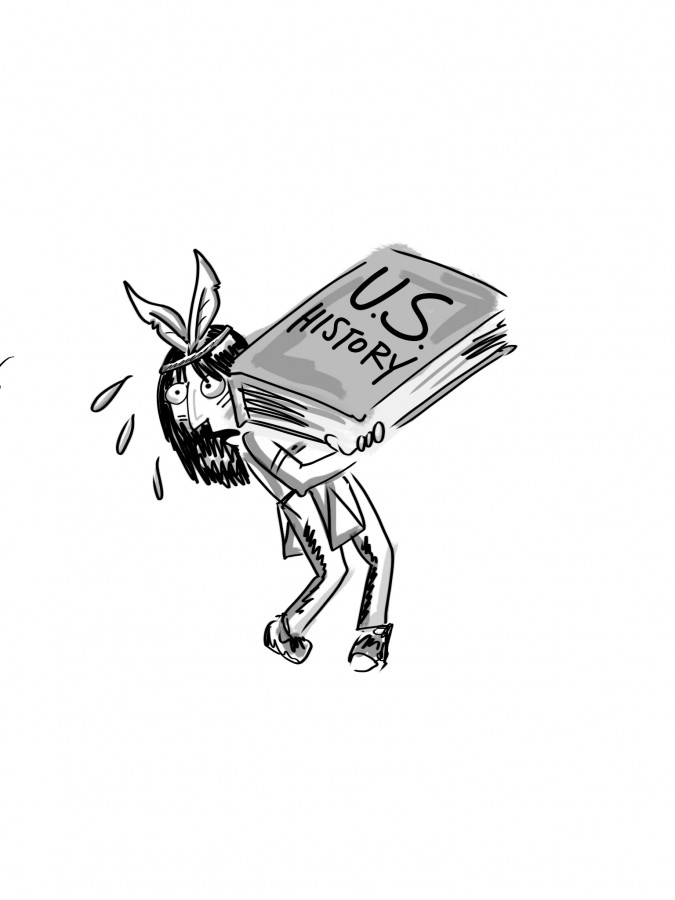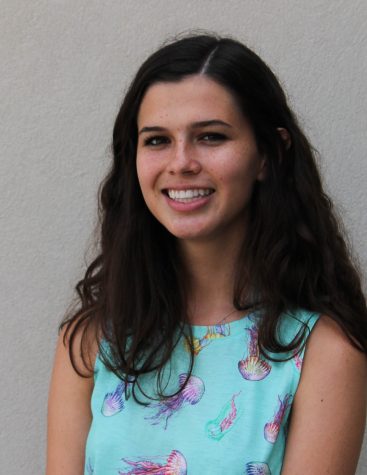A passage entitled “Patterns of Immigration” from McGraw-Hill’s World Geography reads: “The Atlantic slave trade between the 1500s and 1800s brought millions of workers from Africa to the southern United States to work on agricultural plantations.”
Although this statement does not seem blatantly wrong at first glance, it sparked numerous debates over the issue of diction and bias in history textbooks throughout the nation. Parents argued that placing a section about slavery in a chapter about immigration implied that Africans willingly came to the United States as slaves. It also implied that African slaves received compensation as workers for their labor. This was not the case for the millions of African slaves who were forced into coming to the South.
Even though McGraw-Hill’s passage elicited complaints and arguments about racial bias in history textbooks, it is important to realize that bias— whether intentional or unintentional— is inevitable in any type of written history. It is impossible to write history by simply listing straight facts. To write good history, one must delve into socioeconomic situations and power relations to truly get at the heart of it. Essentially, bias is an argument of different perspectives.
One of the most popular high school courses in America, Advanced Placement United States History (APUSH) recently became one of the most controversial classes.
In early 2014, conservative state lawmakers across the country fought back against a newly revised course curriculum implemented by the College Board. Critics of the new guidelines claimed that the framework was biased and not patriotic enough. They complained that the College Board did not mention important facts and figures such as Rev. Martin Luther King Jr., the Founding Fathers and the Declaration of Independence. Additionally, they believed that the guidelines placed heavy emphasis on negative events in American history such as slavery and the mistreatment of Native Americans.
In response, the College Board— backed by a majority of teachers— argued that a framework does not necessarily set a specific curriculum.
“Essentially, the College Board attempted to create a more flexible curriculum,” social science teacher Samuel Stewart said. “The critics of the curriculum misunderstood that purpose. The College Board never instructed teachers to stop teaching students about the Founding Fathers, but [the Board] encouraged teachers to take a slightly different perspective.”
Instead of providing a set list of topics for students to memorize, the new standards required more critical thinking, document analysis and synthesis— all skills that are necessary for the next generation of young adults. By taking a looser and more critical approach, the College Board would allow students to consider history from more personal and subjective interpretations.
As a junior taking APUSH this year, I am in complete support of the College Board’s new framework. In middle school and introductory history courses, history class is often times composed of blatantly memorizing battles, dates and people. However, history in the real world requires critical analysis of all aspects. The College Board attempted to move toward this real world approach of history that is more beneficial for students.
However, several states— including Oklahoma, Colorado and Texas— introduced proposals in their state legislatures that revised the course framework to include specific facts that would promote the exceptional American.
The controversial framework now became an issue of countering views between a traditionalist and a revisionist outlook on history, and this was never the College Board’s intention.
Nowhere has the APUSH controversy caused more disturbance than in Jefferson County, Colorado, where high school students began to protest their school board’s decision to establish a review committee for the new framework.
Jefferson County board member Julie Williams wrote the county’s proposal, which states: “Materials should promote citizenship, patriotism, essentials and benefits of the free enterprise system, respect for authority and respect for individual rights. Materials should not condone civil disorder, social strife or disregard of the law.”
Although Williams’s proposed censorship supports a more traditional view of history, removing historical events classified as disorderly is extremely dangerous to both society and posterity.
“I think that these critics of the framework simply want their students to learn the facts of history without discussing any subjective topics,” Stewart said. “However, that’s not being educated. Being educated is being able to evaluate and to analyze the past. This includes giving students the freedom to come up with their own conclusions that might differ from what is accepted.”
Take the Trail of Tears, for example. The enormous amount of suffering and loss experienced by the Native Americans during America’s westward expansion is often times downplayed in American history. However, omitting the incident entirely is doing a disservice to all students. It is completely necessary to educate the next generation of both the successes and the mistakes of any country or civilization.
“These negative events aren’t bad things for the country,” Stewart said. “These things happened. If you don’t want them to happen again, recognize that it happened and prevent that situation.
After months of intense scrutiny, the College Board did eventually release a replacement framework in July, and it responded directly to the fears of critics. As opposed to the earlier framework, it explicitly mentions concepts of American exceptionalism and emphasizes both the names and the positive roles of the founding fathers.
Although the revised framework serves to highlight America’s positive impact on the world, it still includes the dark sides of American history. The College Board claimed that criticisms about missing historical dates and figures were misguided because the framework is not intended to include every single detail that students should learn.
We all have different perspectives, political views and personal experiences that cause us to have varying opinions on events both past and present. However, we must always remember that the history of any country should not be changed or modified for purposes of propaganda or excessive patriotism. Instead, it should be used to teach posterity about the glories and mistakes of the past in order to better society for the future.





